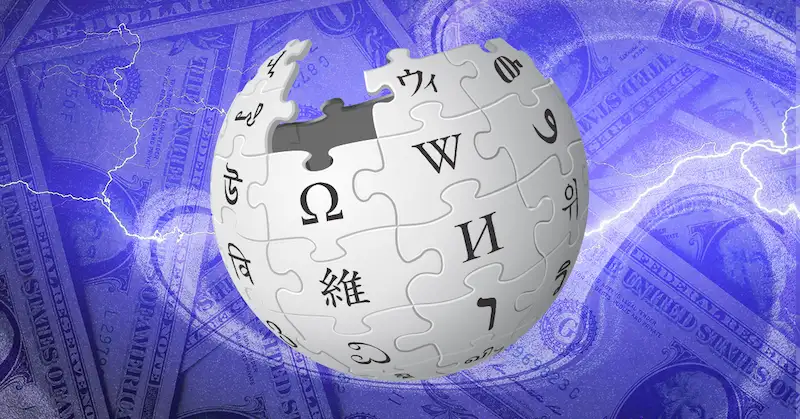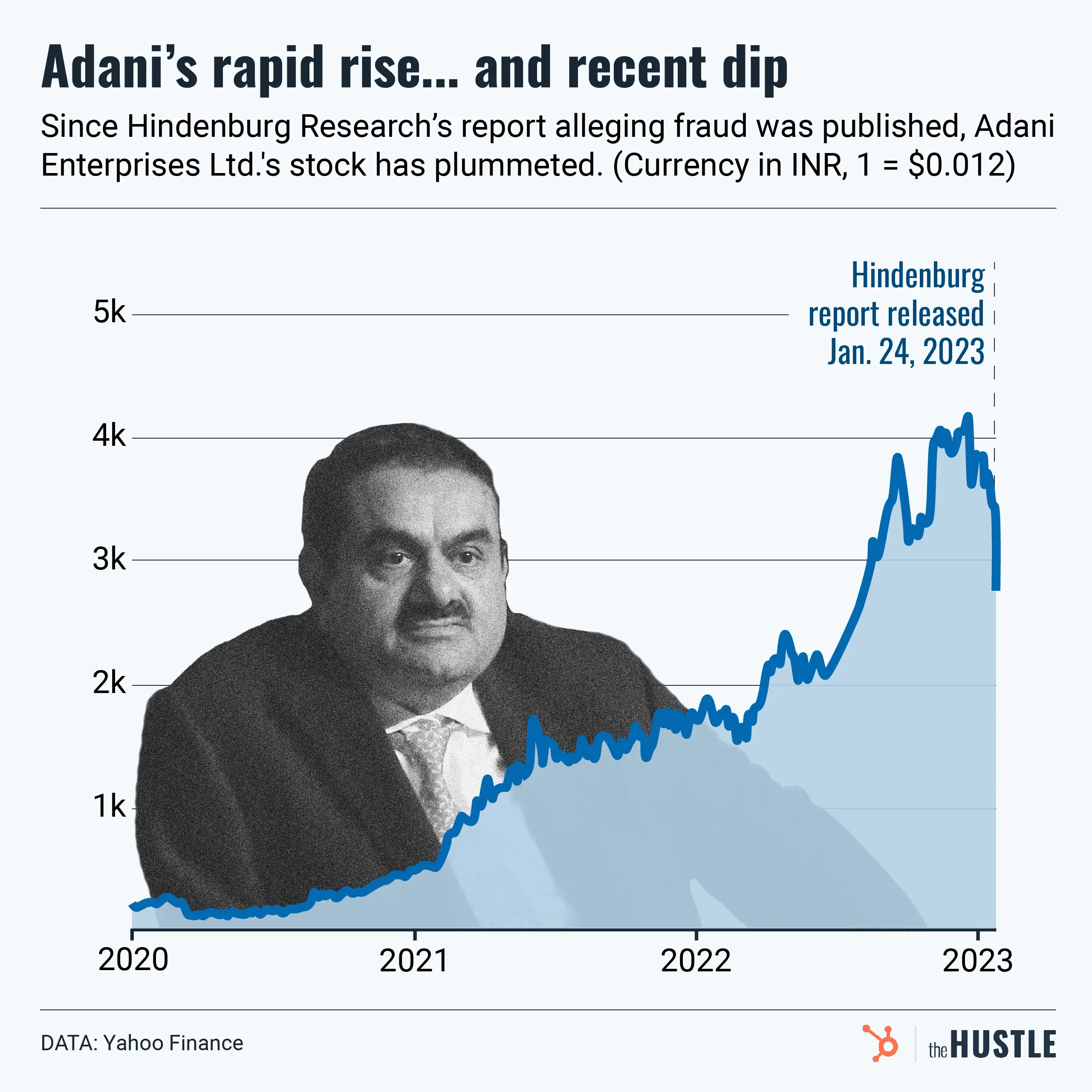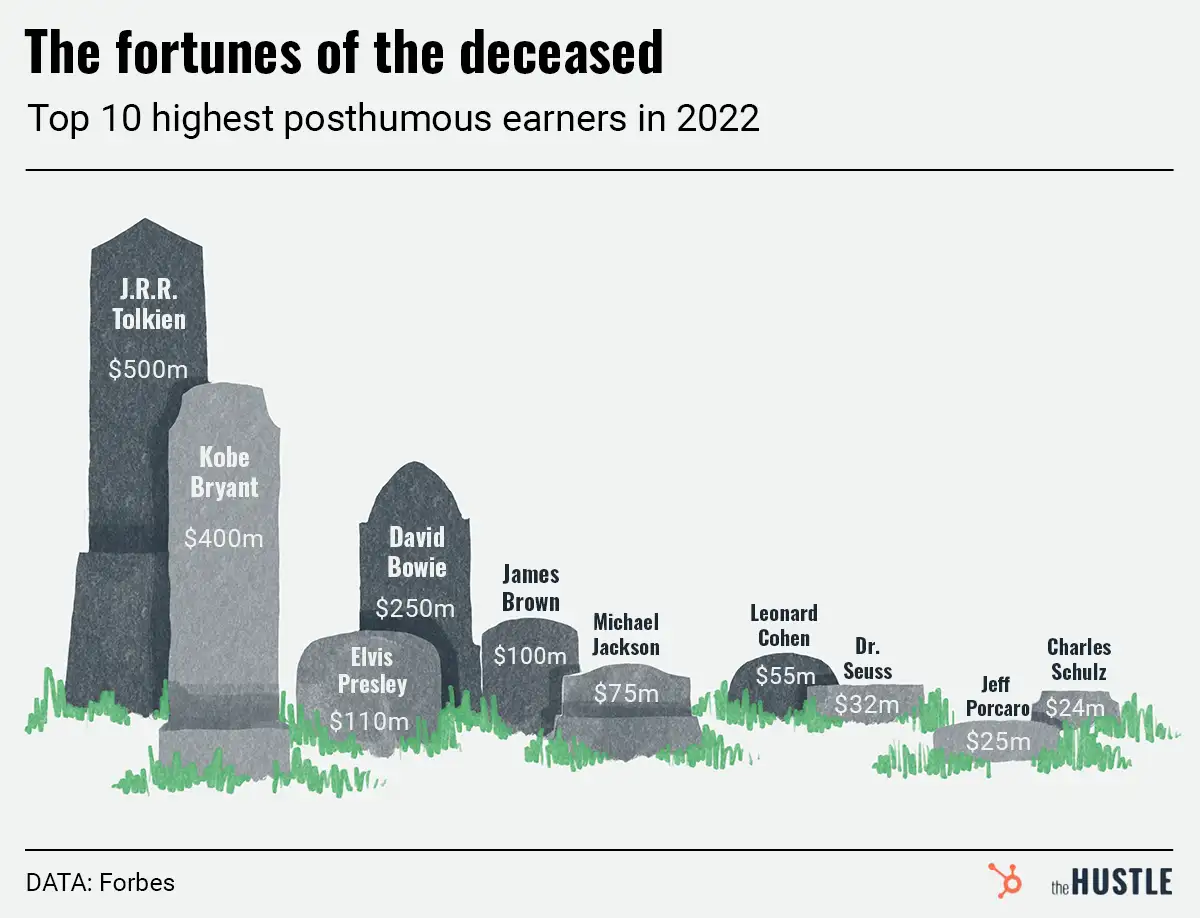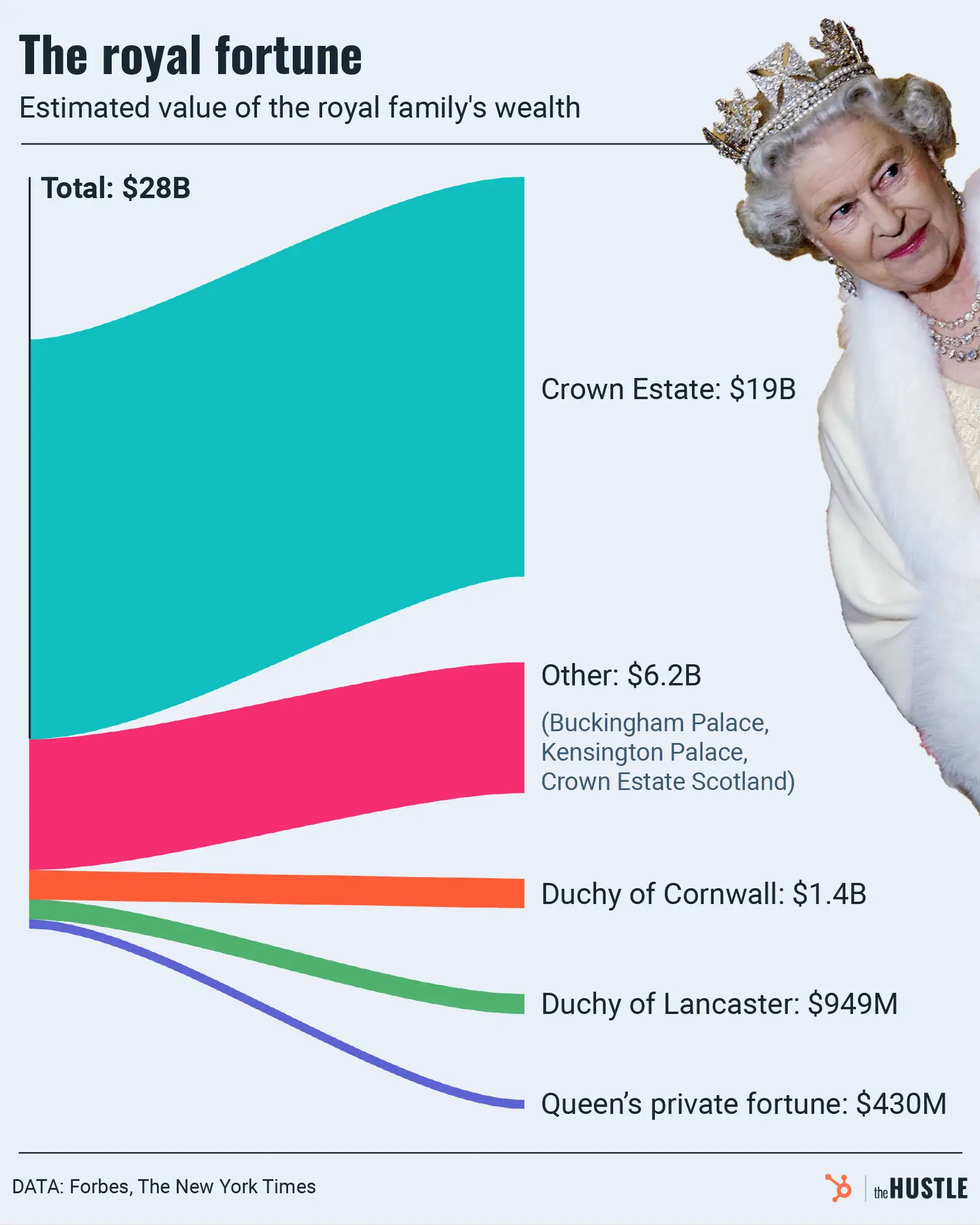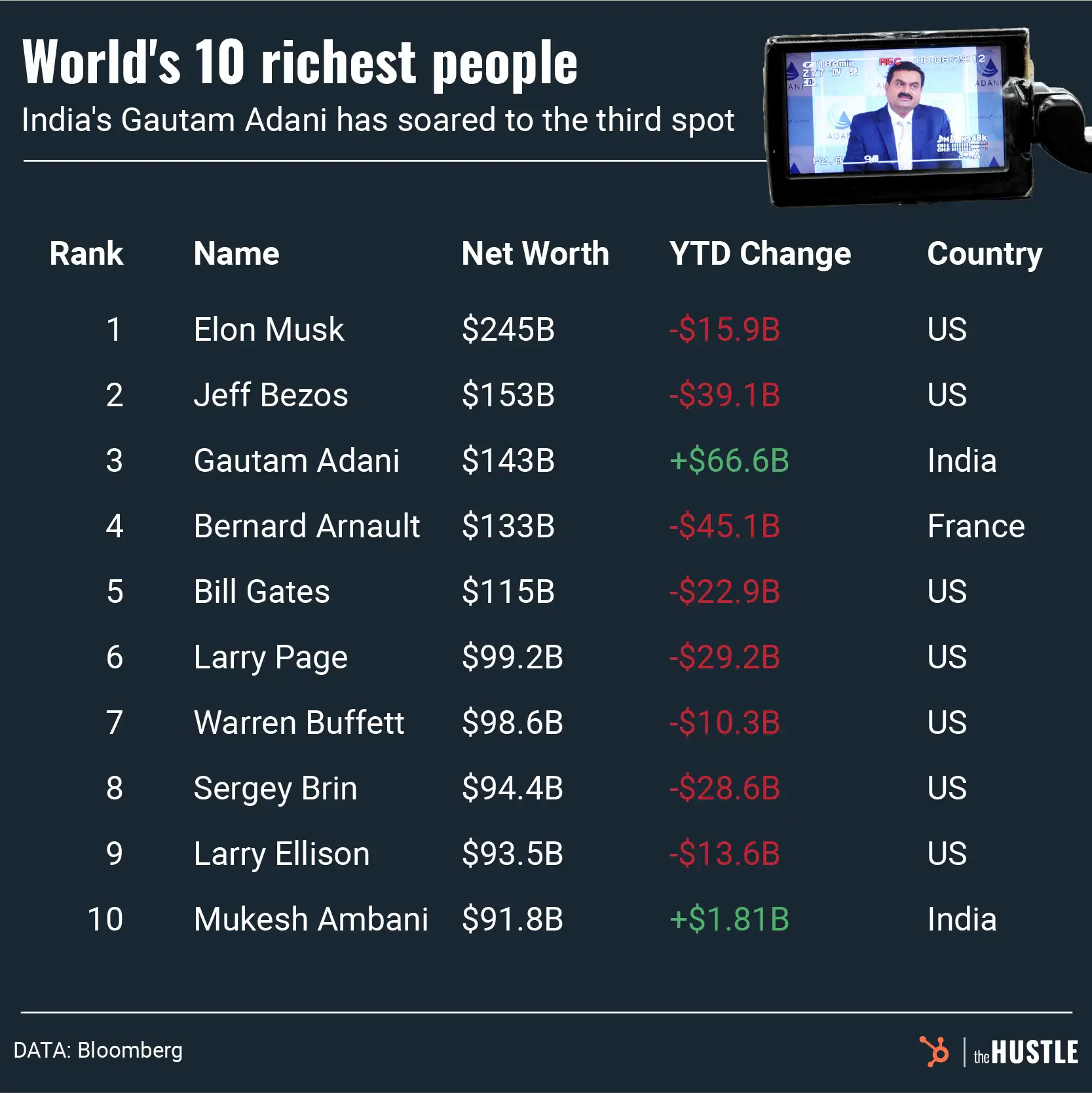Every so often, this wild idea floats to the surface of the economic discourse: What if we got the planet’s richest people to pay just a wee bit of tax on their enormous piles of wealth?

- This message fueled the popularity of Bernie Sanders, who doesn’t believe billionaires should even be a thing.
That pesky idea is back again
This time, it’s the EU Tax Observatory, a network of independent European economists, banging that drum, per Bloomberg.
The organization’s research found billionaires carry effective tax rates of 0%-0.5% today.
- At that rate, the world’s 2.75k billionaires contribute just ~$44B to government coffers every year.
The economists ran more numbers: What if that wealth got taxed at a 2% rate? (That’s way less than us idiots who don’t hide our money offshore or in holding companies, but still an improvement).
- Their eyebrow-raising results: The increased taxation would yield an additional $214B per year.
Experts are now using those numbers to sound the alarm:
- The EU Tax Observatory’s report also included recommendations for “tax justice” to improve the “social sustainability of globalization.”
- Nobel Prize-winning economist Joseph Stiglitz joined their call for a global minimum tax on billionaires.
OK, but would this ever actually happen?
Eighty-one billionaires control 50%+ of the world’s wealth while 648m people live in extreme poverty, so imagining a world with $250B+ available annually for redistribution and reinvestment can be an enticing thought.
But don’t hold your breath.
As a reminder of how this stuff usually works, just look at 2021, when a landmark agreement between 136 countries set a 15% minimum tax rate for large multinational corporations.
What a win, right? Sure, except for all the loopholes that have chopped payments down to ~5%.
Bottom line: The rich always win, except maybe in Snowpiercer — which is fitting because building a functional, self-sustaining circumnavigational train feels about as likely as cajoling the uber-wealthy into paying a fair share.




